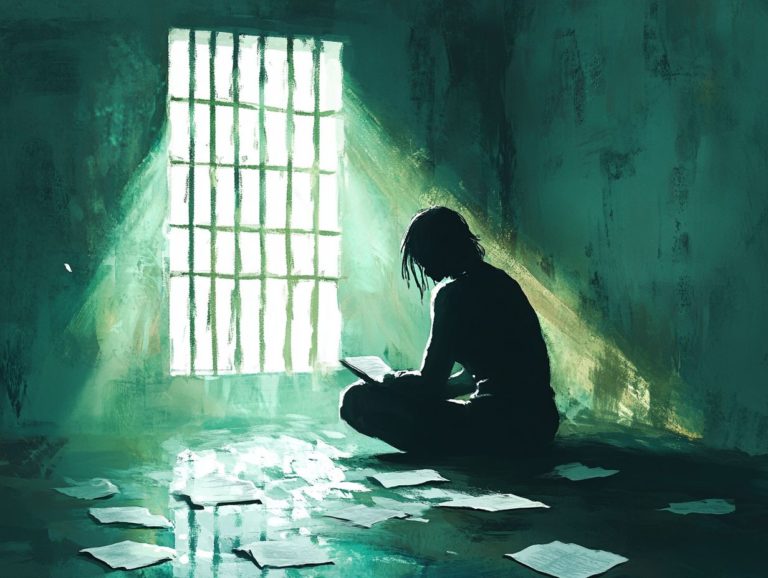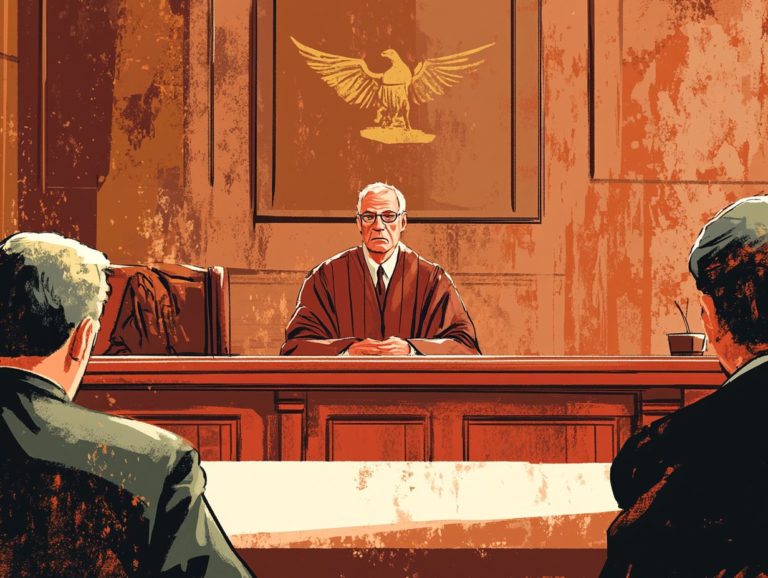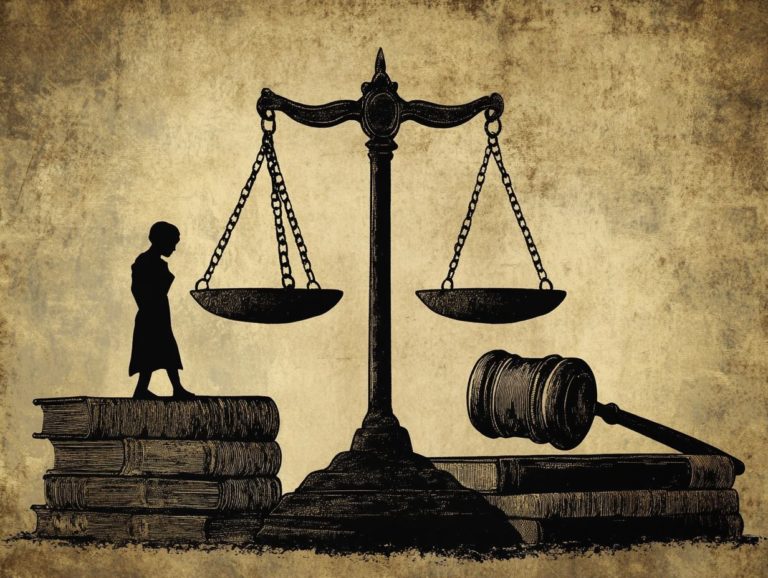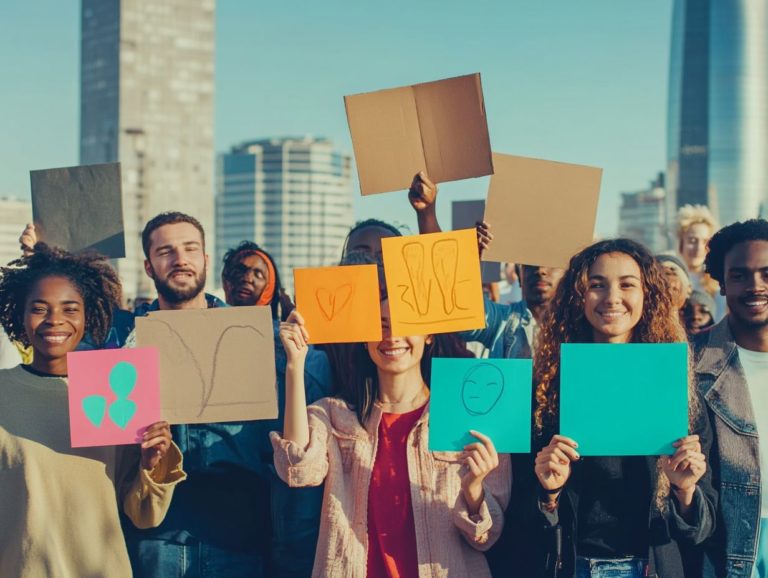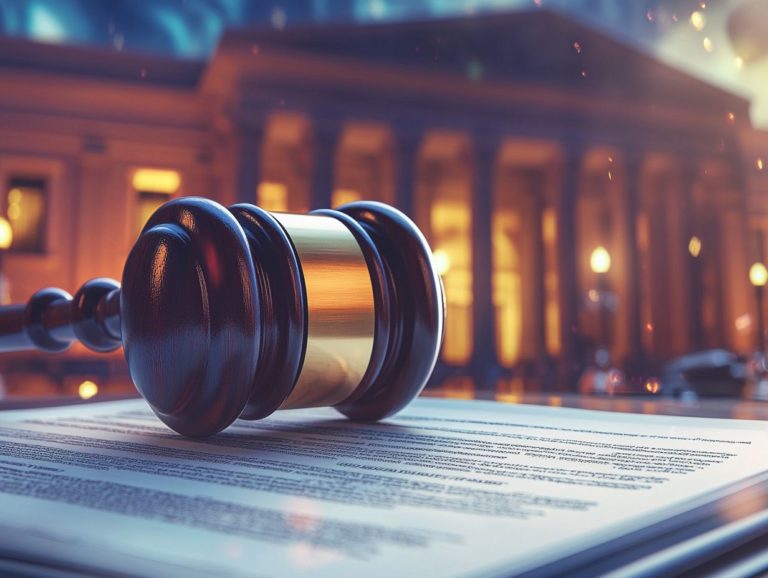What Happens If Rights Are Ignored?
Have you ever felt your rights were ignored? You re not alone. In the intricate fabric of our world, grasping the concept of rights is essential for cultivating a just society. When these rights are overlooked or disregarded, the consequences can be serious and affect us all not only for individuals but for entire communities.
This article delves into the essence of what rights truly are, the consequences of neglecting them, and real-life instances where such disregard manifests in society and relationships. You ll discover how these issues impact mental and physical health, as well as the broader societal fallout. We will also provide practical strategies for advocating and reclaiming these rights.
Explore with us the critical importance of recognizing and upholding rights, paving the way for a healthier, more equitable world.
Contents
Key Takeaways:
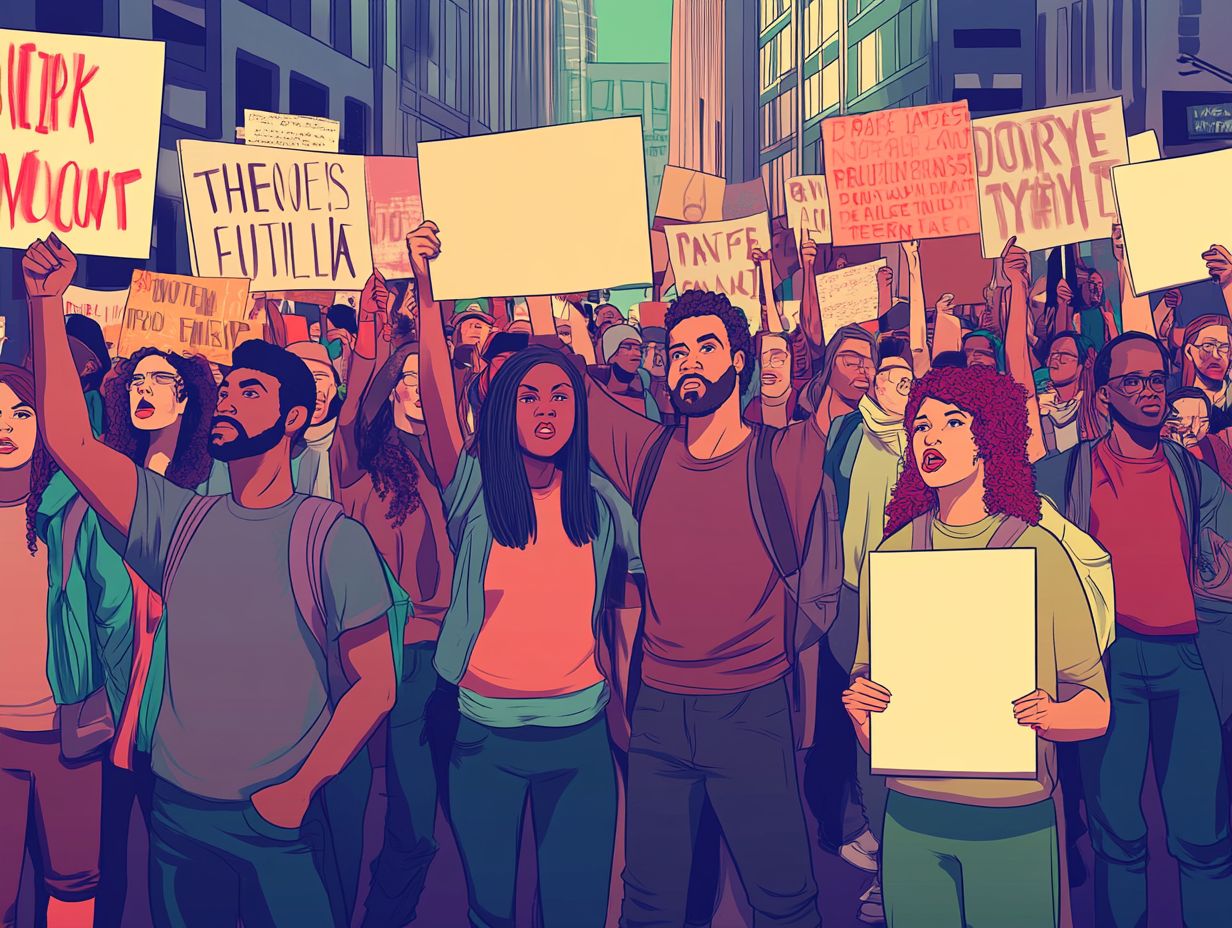
- Ignoring rights can lead to serious consequences, both for individuals and society as a whole.
- Examples of ignoring rights can be seen in various aspects of life, including in relationships and within society.
- Addressing ignored rights can involve both individual responsibility and larger efforts of advocacy and activism.
Understanding Rights and Ignoring Them
Understanding human rights helps create a just society. When these rights are overlooked, the repercussions can be severe, impacting both individuals and communities.
Human rights include legal protections against discrimination, excessive force, and civil rights violations, creating a foundational framework for society. Upholding these rights not only holds governments accountable but also ensures legal protections, cultivating an environment where humanitarian crises can be effectively tackled.
Organizations like the UN Human Rights tirelessly champion these standards on a global scale, underscoring the critical need to recognize and respect these rights for a shared human future.
What are Rights?
Rights are essential entitlements you possess, designed to provide protection under the law and to uphold human dignity.
These rights can be categorized into various types, including fundamental human rights and constitutional rights.
Fundamental human rights are universally recognized and serve to preserve the inherent dignity and freedom of all individuals, regardless of nationality, ethnicity, or belief. In contrast, constitutional rights are tailored to the specific legal framework of your country, written into its laws to safeguard citizens against potential abuses by the state.
Understanding these distinctions is crucial for you, as they play a significant role in shaping the legal system, establishing a foundation for justice and equality.
Consequences of Ignoring Rights
Ignoring rights can lead to severe consequences, including civil rights violations and instances of government overreach that can erode your trust in the legal system.
Consider how many communities have experienced significant social unrest following cases of excessive force by law enforcement, demonstrating a breakdown in public trust. When you perceive your rights as being overlooked, it s not uncommon to see individuals turning to protests or legal actions, which can escalate tensions in the community.
Cases involving unjustified police actions serve as stark reminders of the potential for abuse of power, highlighting the urgent need for robust accountability mechanisms. Advocating for transparent review boards and community policing initiatives can help foster a greater sense of fairness and justice, ultimately restoring faith in the very institutions designed to protect those rights.
Examples of Ignoring Rights
Examples of neglecting rights manifest in numerous ways, including severe human rights violations that frequently remain unaddressed. This highlights systemic discrimination and exposes failures in government accountability.
In Society
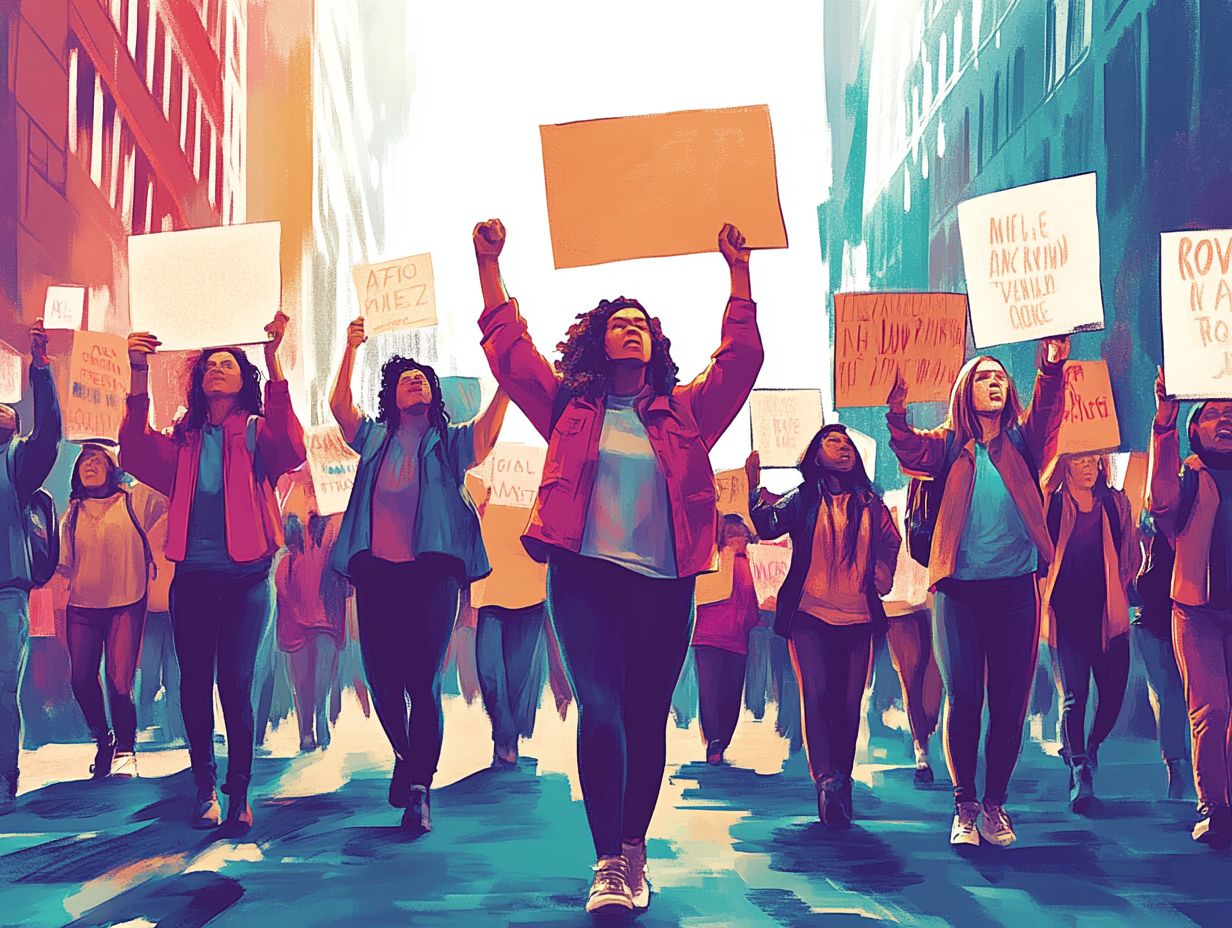
In society, failing to recognize and uphold rights can lead to civil rights violations that particularly impact minorities seeking access to public accommodations.
Neglect creates an environment for discrimination. It paves the way for systemic inequalities woven into our institutions.
When you witness denial of service based on race or disability, it highlights the urgent need for proactive measures to ensure equal treatment in all public spaces.
Governments play a vital role in this situation, capable of either worsening these issues through leniency or actively addressing violations.
A lack of enforcement of anti-discrimination laws sends a dangerous message: societal acceptance of these injustices is tolerable. This only marginalizes vulnerable groups and perpetuates cycles of inequity.
In Relationships
In personal relationships, neglecting fundamental human rights can compromise human dignity, leaving victims of misconduct feeling vulnerable and unprotected.
Ignoring these rights can ensnare individuals in cycles of abuse or manipulation, inflicting long-term psychological and emotional distress. The absence of legal safeguards deepens this vulnerability, often leaving one without recourse and undermining self-worth.
Everyone deserves respect and protection. Emphasizing laws that uphold individual dignity is essential.
Through preventive measures or intervention in cases of abuse, legal protections act as vital pillars, enabling individuals to reclaim their agency and nurture healthier, more equitable relationships.
Impact on Individuals and Society
Ignoring rights seriously impacts both individuals and society, leading to declining mental and physical health and making social issues worse.
The ripple effect of this neglect is far-reaching, creating a cycle of distress that undermines community fabric.
Effects on Mental and Physical Health
Rights violations severely impact mental and physical health, causing chronic stress, anxiety, and a decline in overall well-being.
Research shows that individuals facing systemic discrimination such as racial profiling or gender-based violence often report heightened anxiety and depression. For example, a study revealed that over 50% of domestic violence survivors struggle with severe mental health issues linked to their experiences.
Access to healthcare can be drastically limited for marginalized communities, worsening existing health problems and hindering access to essential mental health support.
The interconnected nature of these violations and their consequences is clear, underscoring the urgent need for advocacy and protective measures.
Societal Consequences
Ignoring rights leads to significant societal consequences, including widespread discrimination that erodes trust in government institutions and undermines accountability.
When you or your community feel that rights are not upheld, it fosters disenfranchisement and alienation. This disconnect heightens tensions between marginalized groups and authorities, creating an environment where individuals may feel powerless to advocate for their needs.
In these situations, enforcing discrimination laws is a crucial indicator of both justice and ethical governance. As trust in these systems declines, collective action may diminish, leading to a culture of impunity, deepening social divides, and hampering effective policymaking.
How to Address Ignored Rights
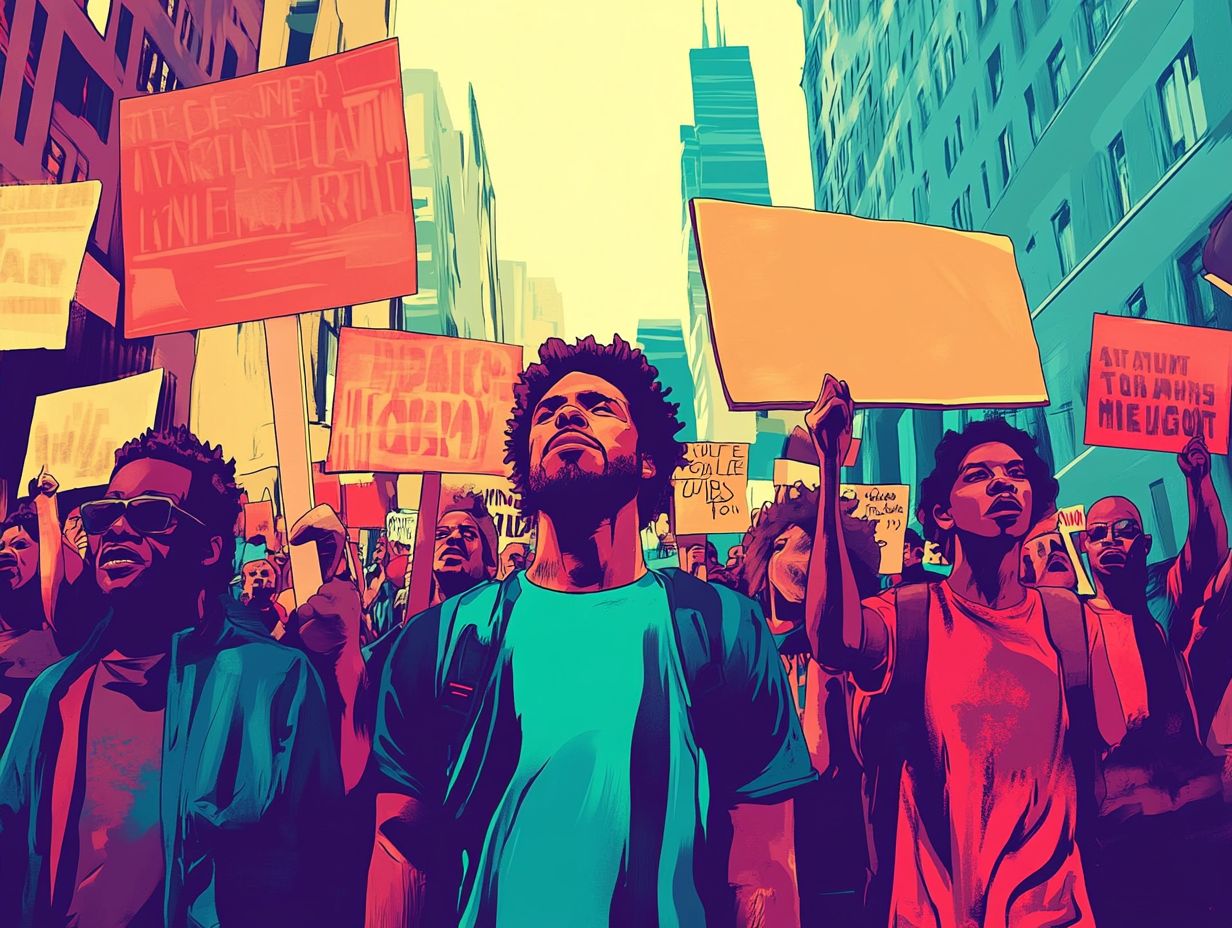
Addressing neglected rights requires a multifaceted approach that combines advocacy, activism, and a strong commitment to personal responsibility within both the legal system and the community.
It’s about weaving together efforts that highlight injustices and empower individuals to play an active role in fostering change.
Advocacy and Activism
Advocacy and activism play an essential role in the fight for human rights, enabling you and your community to hold authorities accountable for civil rights violations.
You can engage in various forms of advocacy. Grassroots organizing, public awareness campaigns, and legislative lobbying are vital tools for creating meaningful change.
Look at successful movements like the LGBTQ+ rights campaigns that championed marriage equality and the Black Lives Matter initiative, which advocates against racism that is built into our systems. These movements demonstrate how collective voices can drive landmark policy reforms.
These efforts raise public awareness and push governments to act, prioritizing accountability and enhancing protections for marginalized groups.
Use social media powerfully to inspire action and foster a culture of respect and dignity for every individual.
Personal Responsibility
Personal responsibility is crucial in upholding human rights, encouraging you to act in ways that not only protect legal protections but also promote a more equitable society.
When you recognize your duty not just to yourself but to others as well, you create a ripple effect that strengthens communities and fosters a culture of respect. By engaging in advocacy actions whether it s raising awareness about injustices or amplifying marginalized voices you enable not only yourself but also those around you to take meaningful action.
This interconnected approach underscores that every choice you make can either uplift or undermine the dignity of all, emphasizing the importance of shared responsibility. Ultimately, through these mindful actions, you play a significant role in shaping a brighter, more just future for humanity.
Frequently Asked Questions
What Happens If Rights Are Ignored?
When rights are ignored, individuals may face various consequences depending on the type of rights being ignored. This can range from legal repercussions to emotional and physical harm.
What are some examples of rights being ignored?
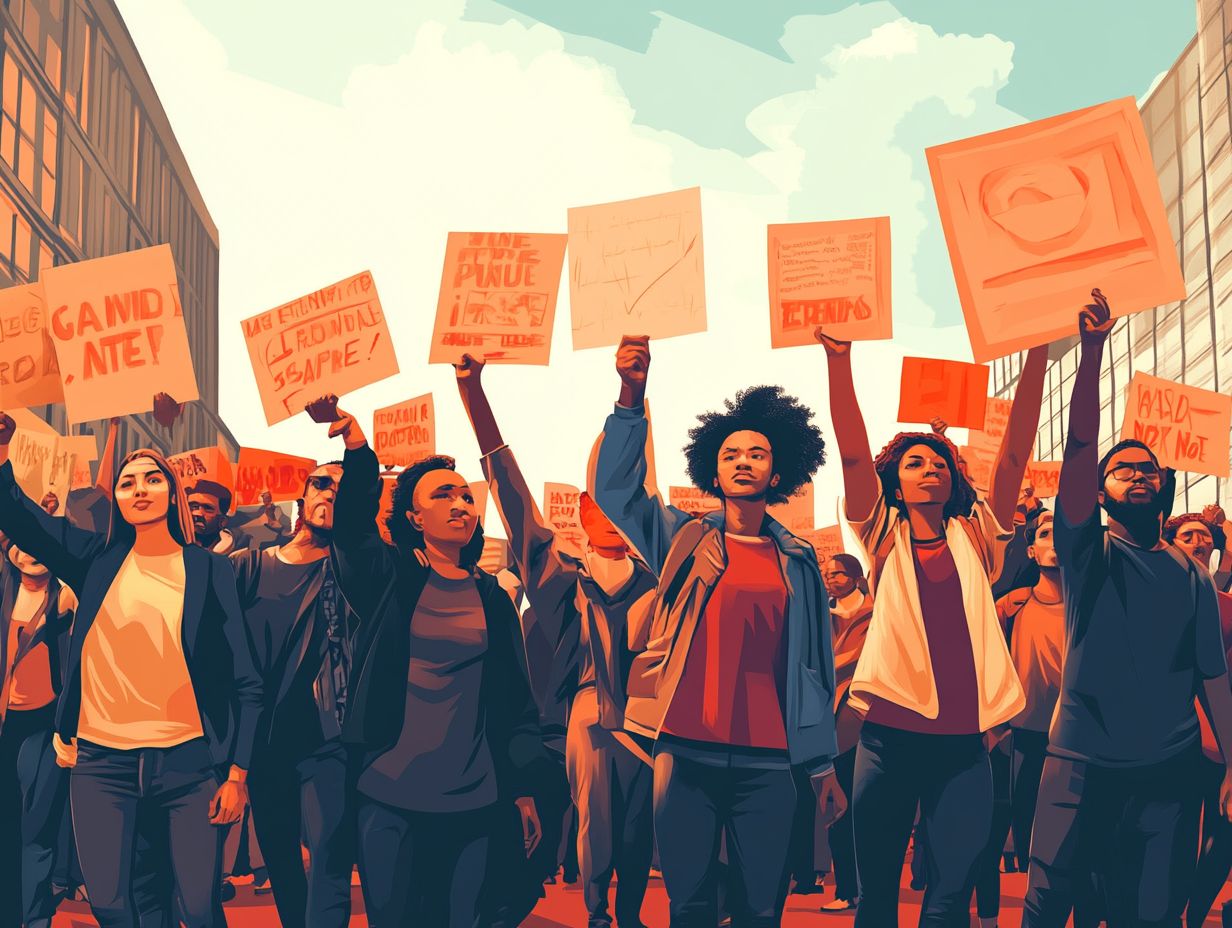
Examples of rights being ignored include discrimination based on race, gender, or religion, violation of workers’ rights, and denial of freedom of speech or expression.
What are the legal consequences of ignoring someone’s rights?
The legal consequences of ignoring someone’s rights can vary depending on the specific rights that were violated. It can lead to lawsuits, fines, or even imprisonment.
How can ignoring rights impact society?
Ignoring rights can create a negative impact on society by promoting inequality, discrimination, and injustice. It can also result in social and political unrest, leading to a breakdown of trust and unity among individuals and communities.
What can be done to address the issue of ignored rights?
To address the issue of ignored rights, it is important to raise awareness and educate individuals about the importance of respecting and upholding the rights of others. Organizations and governments can also implement laws and policies to protect and promote human rights.
How can we support those whose rights have been ignored?
Act now to stand against injustice and support those whose rights have been ignored by advocating for their rights and providing them with resources and support. It is also important to listen to their experiences and amplify their voices to bring attention to the issue.

